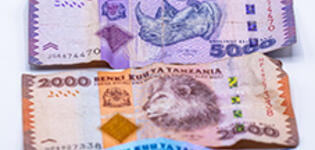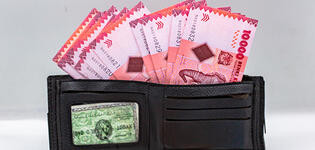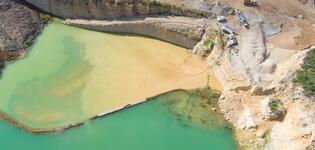Blog
Paralyzing debt burden threatens Africa’s largest economy
Apart from a ‘badly flawed’ national election, insecurity, and mass exodus of its young talents to the Global North (locally known as Japa), a paralyzing debt burden is among the existential threats facing Nigeria, Africa’s largest and most populous economy. Between 1999—when democracy returned—and 2021, Nigeria’s total public debt increased more than six-fold.
As of 31 December 2022, the country’s total indebtedness was NGN 46.2 trillion (about USD 100 billion), and this excludes the NGN 27.5 trillion ‘Ways and Means’ loans from the Central Bank. Given the fiscal deficits in 2023 federal and state budgets, and the likelihood of additional borrowings by incoming federal and state governments, the national debt could surpass NGN 77 trillion by end of 2023.
At 38% of GDP in 2022, Nigeria’s public debt is still within the self-imposed limit of 40% of GDP. However, given its poor revenue generation and debt service capacity, the debt burden is paralyzing the country and jeopardizing its future. In Q1 of 2022, Nigeria spent 310 billion more on debt service than it generated in revenue. Overall, Nigeria’s debt service-to-revenue ratio was 96% in 2022, which means only 4% of incoming revenue was available for basic social services and other expenditures. This ratio will soon surpass 100% when repayments begin on USD 2 billion in Eurobond debt due between now and 2025.
The poor debt service capacity is directly linked to the country’s abysmally low revenue generation. In 2019, for instance, Nigeria’s revenue was 7.7% of its GDP compared to the African average of 23%. Also, between 2016 and 2022, Nigeria failed to meet its revenue targets, which exacerbated its year-on-year budget deficits and spurred more borrowing. The fiscal deficit will remain above 5% of GDP in 2023–2025 period.
The road to the current debt predicament
Like its counterparts, Nigeria’s economy and debt sustainability were battered by the COVID-19 crisis and compounded by Russia’s invasion of Ukraine and a hawkish monetary policy by the Federal Reserve. However, its debt predicament results mostly from decades of ‘systematic profligacy, mismanagement, and corruption’ according to one senior fellow at the Council on Foreign Relations.
Like others, Nigeria was overwhelmed by unsustainable debt in the early 2000s with USD 30 billion owed to the Paris Club alone. However, thanks to the Jubilee 2000 debt relief campaign, a large portion of the Paris Club debt—USD 18 billion—was cancelled in 2005, returning the country to debt sustainability. The borrowing space provided was quickly squandered in a borrowing spree spanning more than a decade and fueled by availability of cheap capital, as yield-hungry investors flocked to emerging markets after the 2007–08 Global Financial Crisis.
Most of the borrowing occurred under president Buhari. Total public debt rose from NGN 11.24 trillion to NGN 46.2 trillion during his eight-year tenure. Foreign debt alone nearly tripled between 2015–2021.
Corruption and revenue leakages from illicit financial flows (IFFs), oil theft, and vandalism also contribute to the current debt problem via loss of revenue. Nigeria lost USD 582 billion to corruption since independence in 1960, according to a YIAGA Africa estimate, and loses USD 15–18 billion annually to IFFs. Although the Buhari government clinched power on an anti-corruption platform, inconsistencies show that his anti-corruption campaign was largely unsuccessful. For example, the pardoning of high-profile politicians convicted of corruption, including former governors Joshua Dariye and Jolly Nwame, and Buhari’s own admission that ‘corruption [is] almost everywhere; at many levels of government, and nearly every stratum of our society’.
Nigeria is also bleeding from decay in the oil sector. The country loses about 400 thousand barrels daily to oil theft allegedly perpetrated by government officials, according to the Office of the National Security Adviser. Due to oil theft and vandalism, the country has not met its OPEC-quota in recent years (in July 2022, it missed its 1.8 million barrels daily OPEC-quota by 717,000 barrels resulting in a loss of USD 2.4 billion) and could not profit from the oil boom induced by the Russian invasion of Ukraine.
The task for the incoming government
There has been a ‘sludge of tension in the air' as Nigerians awaited the final outcome of the petitions filed by former vice president Atiku Abubakar of the People’s Democratic Party and Peter Obi of the Labor Party to nullify Bola Tinubu’s emergence as president-elect. Tinubu was, as expected, sworn in on 29 May 2023 and will take charge of the country till 2027, with the worsening debt situation among the concerns. Given high and rising borrowing costs which threaten to shut Nigeria out of the international capital markets, its hope of avoiding a full-blown debt crisis in the coming months is contingent on critical domestic reforms aimed at increasing revenue and reducing debt. These include permanently removing a petrol subsidy, tax reforms, and tackling corruption seriously.
Apart from fueling corruption and benefiting only the well-off, the 2% of GDP spent on the petrol subsidy annually comes from borrowing, making its removal imperative to reduce fiscal and debt pressures. Scrapping the petrol subsidy by mid-2023, as envisaged in the 2023 Budget (before being reversed by the outgoing government in April 2023), will result in a cumulative fiscal savings of 3.7% of GDP in 2023–2027, according to the International Monetary Fund, providing the government with additional fiscal space to fund SDGs, climate mitigation, and adaptation investments.
Increasing tax revenue by expanding the tax bracket (offshore tax evasion is prevalent and only about 15 million people pay taxes), expanding automated tax collection, and strengthening interagency coordination and data sharing is also crucial to reducing chronic fiscal deficits. Likewise, tightening enforcement of procurement laws and digitalization of public revenue collection channels can minimize corruption and plug revenue leaks. If the debt overhang persists, the incoming government should explore debt restructuring options soon.
Geoffrey Adonu is a lawyer admitted in New York and Nigeria. His practice covers international financial transactions, including sovereign debt management. Mr. Adonu received a Juris Doctor from the University at Buffalo School of Law and an LLM from New York University School of Law.
 Join the network
Join the network












